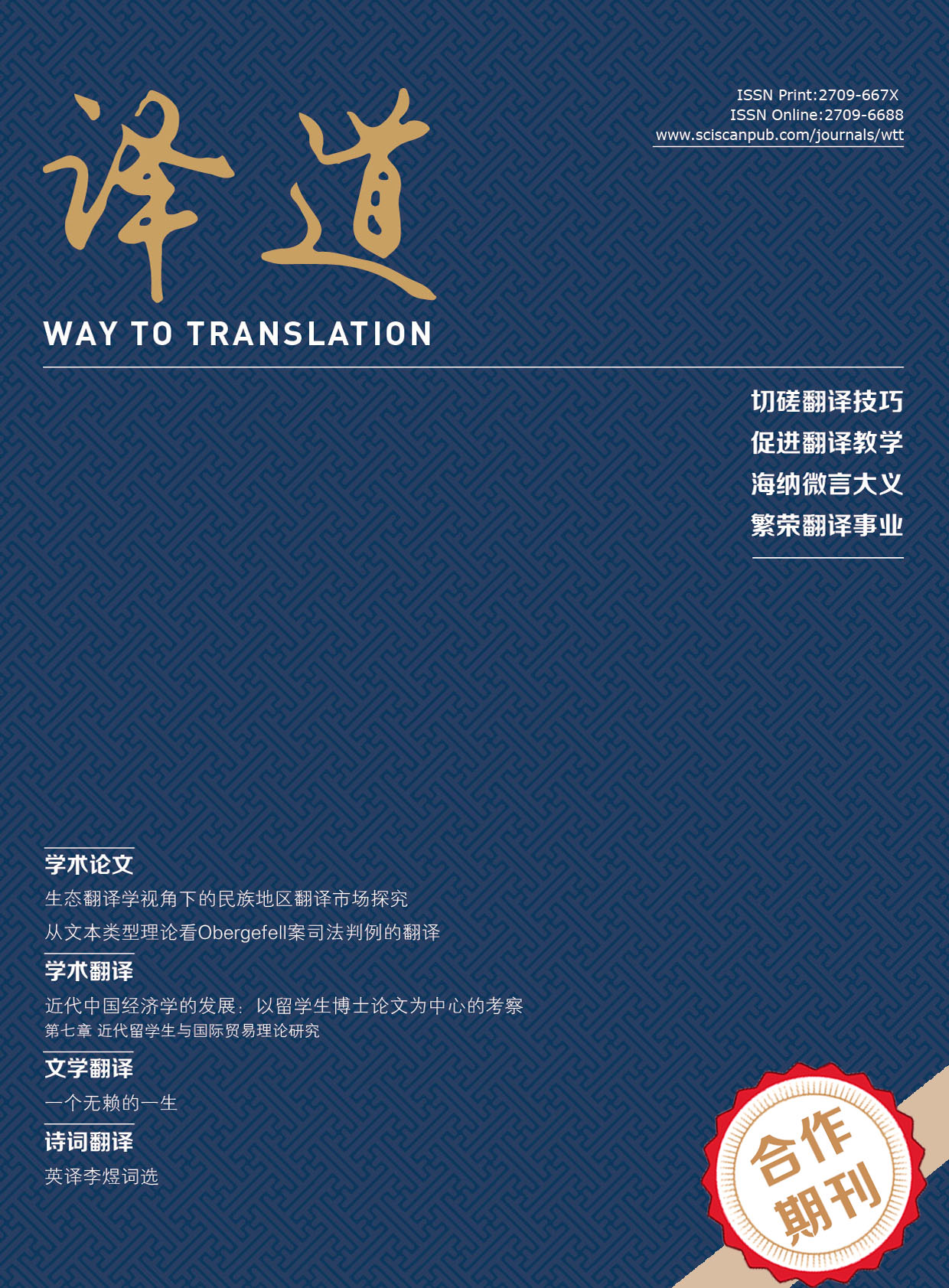Way to Translation
ISSN Print: 2709-667X
ISSN Online: 2709-6688
Contact Editorial Office
Subscribe to the latest published information from SCISCAN
情感计算与认知分析在诗歌翻译批评中的融合应用——以《莎士比亚十四行诗》五个汉译本为例
Affective Computing and Cognitive Analysis of Poetry Translation—A Case Study of Five Chinese Translations of Shakespeare’s Sonnets
- Authors: 黄曦 陈庆
-
Information:
广东外语外贸大学,广州
-
Keywords:
Affective computing; Cognitive analysis; Poetry translation criticism; Artificial Intelligence; Shakespeare’s Sonnets情感计算; 认知分析; 诗歌翻译批评; 人工智能; 《莎士比亚十四行诗》
- Abstract: This study combines affective computing and cognitive analysis to delve into the realm of emotional exploration within poetry translation. It investigates the viability and potency of employing a quantitative-qualitative approach in poetry translation critique, exploring pathways for leveraging artificial intelligence to enrich methodological improvements and innovations in literary translation criticism. Using a sentiment analysis platform with limited human intervention, this study computes and quantitatively analyses the sentiments of translations of several versions of Shakespeare’s Sonnets, which is then complemented by qualitative analysis methods such as cognitive linguistics for textual observation. The method of quantitative analysis significantly improves the efficiency of data acquisition and processing, and helps to visually present the data, while the auxiliary qualitative analysis helps to excavate the deep mechanism behind the data of sentiments. Therefore, combining both paradigms is not only practical but also enhances analytical efficacy in poetry translation criticism. 本研究融合情感计算和认知分析对诗歌翻译进行情感研究,探讨该量化定性方法在诗歌翻译批评中的可行性和效果,以探索如何利用人工智能工具促进文学翻译批评在方法学上的改进与创新。通过情感分析平台与适度的人工干预,本研究对《莎士比亚十四行诗》多个版本的译作进行情感计算并进行量化分析,其后辅以认知语言学等定性分析方法进行文本观察。量化分析的方法显著提高了处理和获取数据的效率,且有助于数据的直观化和可视化,而定性分析的辅助配合有助于挖掘情感数据背后的深层机制。总之,二者的融合应用不仅可行,而且可以提升诗歌翻译批评的分析效率和效果。
- DOI: https://doi.org/10.35534/wtt.0302004
- Cite: 黄曦,陈庆.情感计算与认知分析在诗歌翻译批评中的融合应用——以《莎士比亚十四行诗》五个汉译本为例[J].译道,2023,3(2):31-38.
















